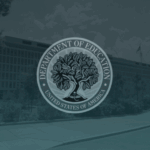The College Accreditation Scam
Parents and students who breathe a sigh of relief because the college of their choice is “accredited” may want to wait to exhale. “The main reason for this failure is that the system relies too heavily on colleges to self-regulate,” Andrew Gillen, Daniel L. Bennett and Richard Vedder write in a paper for the Center for College Affordability and Productivity (CCAP). “For example 83% of the board for Middle States Commission on Higher Education is comprised of people that work for institutions that they then accredit.”
“Similar numbers are just as pervasive in the other regional accreditors.” With insiders grading themselves, it might not be so startling that they view a lighter work load as a barometer of a quality education. Campbell University found itself in the crosshairs of an accrediting agency because the university’s 15-hour-a-week teaching limit exceeded the accreditors’ more humane 12-hour-a-week standard.
Moreover, despite the long history of accreditation, the main product of a college education, knowledge, has only recently been a concern of accreditors. “Since 1992, accreditors have been required to collect evidence of student learning, but the college lobby has ensured that these are self designed assessments,” Gillen, Bennett and Vedder write. “Thus we are left in the peculiar position in which the ‘standards for accreditation, which vary by region, are based on an institution’s self-study of the extent to which the institution feels it has met its own purposes.’”
The situation has not improved since the 1990s. “For instance, a 2006 study by the former president of Teacher’s College at Columbia University concludes that accreditation has failed to provide even a minimum standard for quality of education programs, and even those standards which accreditors have set up to measure quality are ‘misplaced and outdated,’ allowing programs with low quality to receive their stamp of approval,” the authors from CCAP note.
Against this backdrop, it might not be surprising that not many colleges lose their accreditation once they have achieved it. “To get a sense for how reluctant accreditors are to act, note that between 2003 and 2008, the percentage of community colleges being ‘sanctioned, or warned that their accreditation could be stripped, ranged from 0 to 6 percent,’ and that ‘only one two-year institution [in California], Compton Community College, has ever lost its accreditation,’” Vedder and company write. “It is possible that Compton Community College was the only California community college to do an inadequate job educating its students, and that less than 6 percent of all community colleges are in danger of doing so.”
“But this is unlikely, especially when one notes the constant warnings about the dangers of underfunding combined with the conventional wisdom that the sector has been underfunded year after year.” Indeed, a recent report from the University of Alabama Education Center drives home that very point.
Vedder, an economist, and his colleagues, in turn, draw on a voluminous body of research, particularly a 2007 study from the American Council of Trustees and Alumni, whose work appears in single quotes below. It should be noted that Vedder, a distinguished professor at Ohio University, has seen the accreditation process not only as a researcher but also as an interested first-hand observer.
“‘Typically, institutions are sanctioned because of financial shortcomings,’ as was the case with Southeastern University,” Vedder and his co-authors note. “Southeastern remained an accredited university for over two decades despite ‘perpetual dysfunction’ and being ‘mired in obscurity, mediocrity, cronyism, and intermittent corruption.’”
Full disclosure: my wife received her MBA in finance from this august institution, and I do not write that sarcastically. While the chaos of its administration has always been legend, its academic product was, conversely, stellar, with Fortune 500 consultants teaching classes there and business administration textbooks that actually imparted information on, well, business.
That dichotomy actually serves to buttress Vedder and company’s thesis. Yet and still, they go on to note the manner in which colleges and universities can go on to face accreditation battles because of politically correct reasons.
Thus, Thomas Aquinas College went back and forth with accreditors over the school’s Great Books curriculum. Another institution of higher learning was expected to provide “Green Dorms,” according to George Leef of the Pope Center for Higher Education Policy.
Malcolm A. Kline is the Executive Director of Accuracy in Academia.
If you would like to comment on this article, e-mail contact@academia.org




